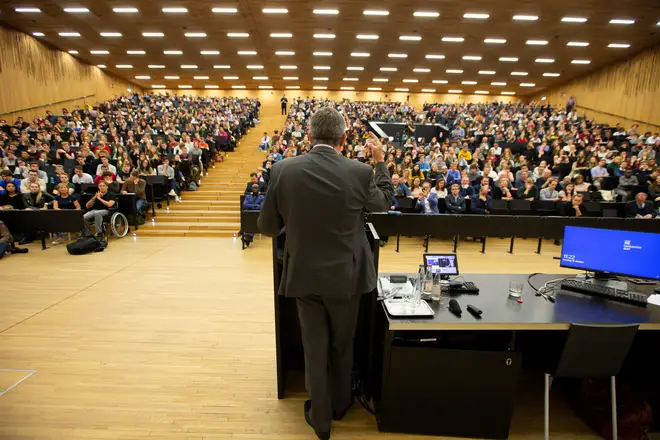
Natasha Devon 6pm - 9pm
3 August 2020, 07:25

Right-leaning or pro-Brexit academics are being forced to hide their views and censor what they teach, putting academic freedom at risk, a new report has warned.
The report by the Policy Exchange think tank argues that academic freedom within British universities could be in danger in higher education institutions.
The Government has been urged to do more to ensure that all lawful speech is protected on university campuses across the country.
There is a "structural discriminatory effect" against the minority of academics at British universities who identify as being on the right, the paper, entitled Academic freedom in the UK, suggests.
"Hostile or just uncomfortable attitudes signal to those subject to such discrimination that they should conceal their views and narrow their research questions to conform to prevailing norms, if they wish to progress and enjoy a positive workplace experience," it warns.

Maajid Nawaz on the importance of free speech
A poll by YouGov found more than one in seven said there was a hostile climate towards people with their political beliefs in their department.
The survey of 820 both current and former academics, found the figure is higher among those who identify as being right-leaning, or among those who voted to leave the EU.
The poll found that 86 per cent of the academics said they would be comfortable sitting next to a Remain supporter at lunch. With a Leave supporter the figure was 54 per cent.
Meanwhile, more than a third said they would feel comfortable sitting with a colleague who opposes admitting transwomen to women's refuge centres.
But more than four in five said they believed academics who were pro-Remain would feel comfortable expressing their views to colleagues, the poll found.
The report suggests that right-leaning academics are more likely to choose to "self-censor" compared to colleagues who are centrists or on the left.
Some pro-Leave social sciences and humanities academics said they had refrained from publishing or airing views in research and teaching for "fear of consequences" to their careers, according to the think tank paper.
It warns: "The challenge today is that a serious threat to academic freedom may now, in addition, arise from within universities.
"This internal threat derives from the way that some in the university-both students and faculty members-relate to others on campus, being willing to penalise them on the basis of their perceived or actual political views."
In a foreword to the report, Ruth Smeeth, former Labour MP and chief executive of Index on Censorship, says: "It does the country no good if our educators, our academics, our scholars and most importantly our students feel that they can't speak or engage without fear of retribution."
The report calls on the Government to make it explicit in law that universities have a direct duty to protect academic freedom and freedom of speech.
It adds that a "Director for Academic Freedom" should be created as part of the Office for Students (OfS) to investigate claims that freedom of speech have been violated and to promote tolerance for viewpoint diversity in the sector.
Universities minister Michelle Donelan said: "University leaders must do much more to champion freedom of speech, and this Government is committed to bringing forward measures to strengthen free speech and academic freedom, potentially including legislation."
She added: "It is deeply concerning the extent to which students and academics with mainstream views are being silenced and discriminated against in our universities."
But Jo Grady, general secretary of University and College Union (UCU), dismissed the findings of the think tank's report. She said: "The idea that academic freedom is under threat is a myth.
"The main concern our members express is not with think tank-inspired bogeyman, but with the current Government's wish to police what can and cannot be taught at university."
The OfS said it is planning to issue guidance on how universities can meet principles relating to academic freedom and free speech in the autumn.
A Universities UK (UUK) spokesman said: "Academic freedom and freedom of speech are critical to the success of UK higher education and universities take seriously their legal obligations on both.
"Robustly protecting these characteristics in a constantly evolving world is of the utmost importance to universities."